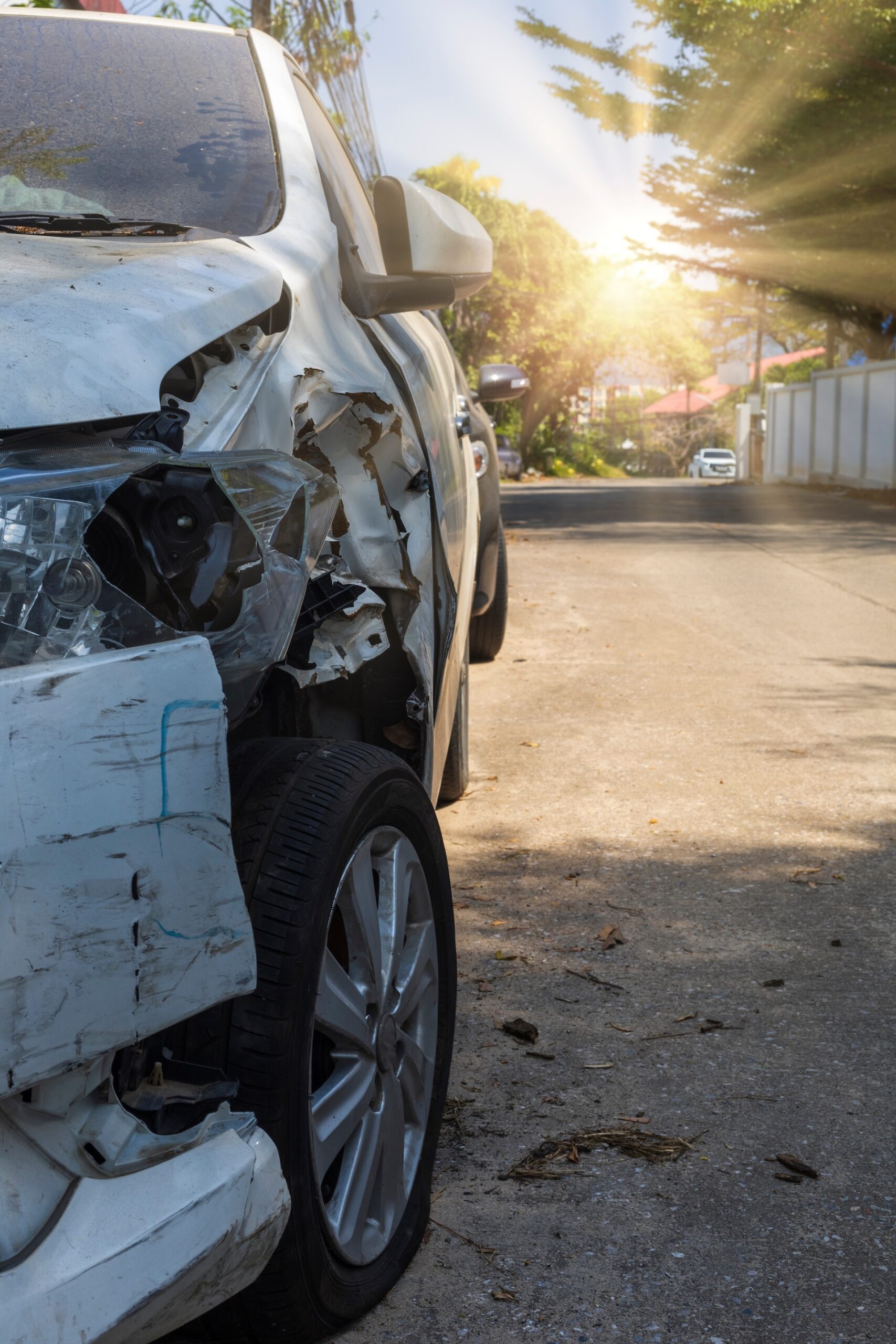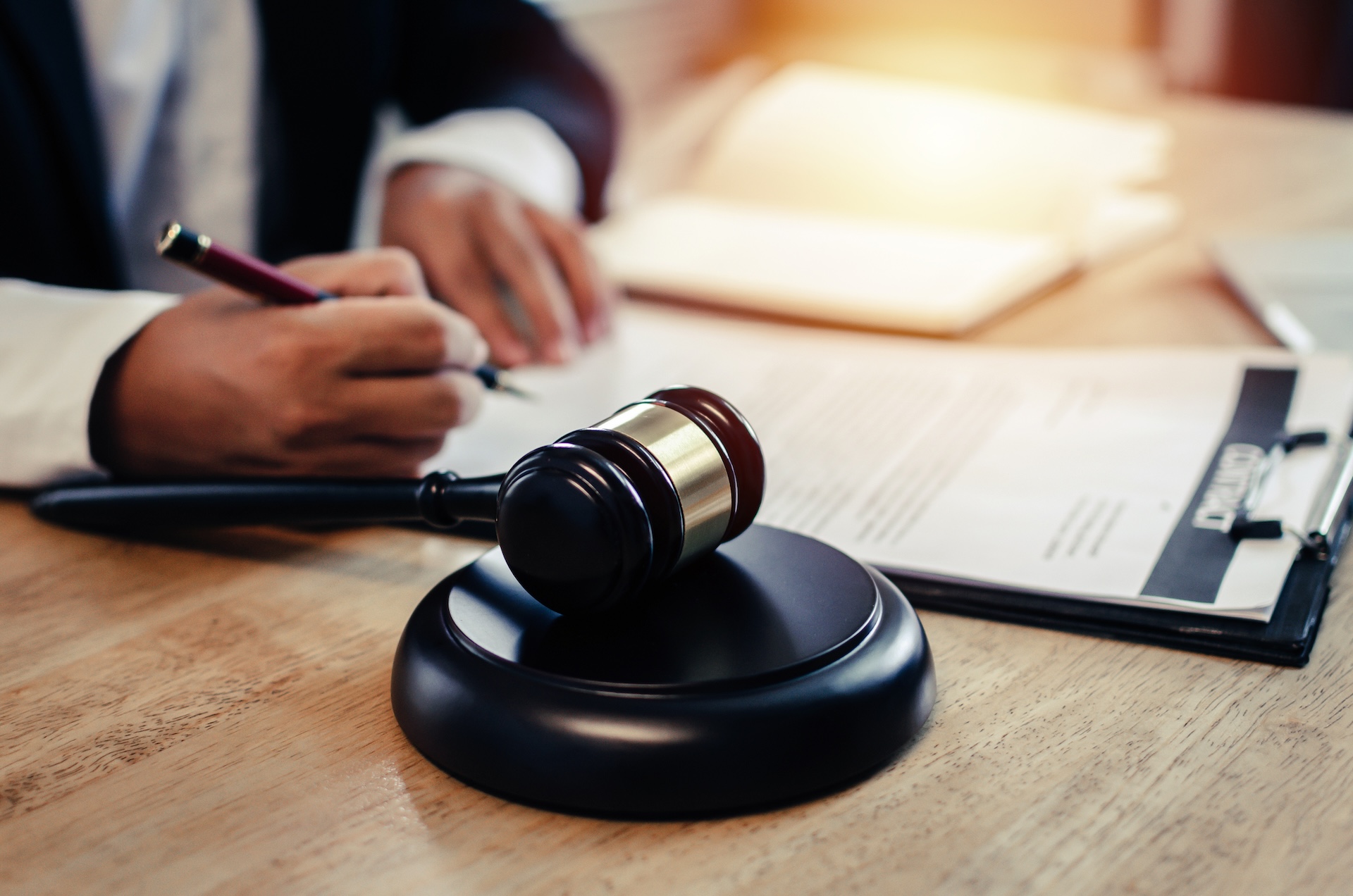Intoxication Manslaughter in Texas: Understanding the Law, Penalties, and Defense Options
At Griffin & Cain, Attorneys at Law, PC, we defend clients accused of intoxication-related offenses across Conroe, The Woodlands, Montgomery County, and surrounding communities. We are committed to helping you protect your rights and pursue the best possible outcome in the most difficult of circumstances.


What Is Intoxication Manslaughter in Texas?
Under Texas Penal Code Section 49.08, a person commits intoxication manslaughter if they:
- Operate a motor vehicle in a public place while intoxicated, and
- Cause the death of another person by accident or mistake as a result of that intoxication.
The statute also applies to people operating aircraft, watercraft, amusement rides, and certain types of machinery. However, the most common context for this charge is a fatal car accident where the driver is found to be legally intoxicated.
Texas defines intoxication as either having a blood alcohol concentration of 0.08 percent or more or lacking the normal use of mental or physical faculties due to the use of alcohol, drugs, or a combination of substances.
The key difference between this charge and a DWI or even intoxication assault is the outcome. If a death occurs, the legal consequences increase significantly. Even if you did not intend to harm anyone, you may still face a felony charge and years in prison.
Elements the State Must Prove
To secure a conviction for intoxication manslaughter, the prosecution must prove several elements beyond a reasonable doubt:
- That the defendant was intoxicated at the time of the offense.
- That the defendant was operating a vehicle or engaging in another qualifying activity.
- That the intoxication was the cause of an accident.
- That the accident resulted in the death of another person.
It is important to understand that intoxication manslaughter is considered a strict liability offense. That means the prosecution does not have to prove that you intended to harm anyone or that you were driving recklessly or with malice. The simple fact that a death occurred while you were intoxicated may be enough to support a conviction.
Criminal Penalties for Intoxication Manslaughter
Intoxication manslaughter is classified as a second-degree felony in Texas. The standard penalties include:
- Two to twenty years in state prison
- A fine of up to ten thousand dollars
- A driver’s license suspension for up to two years
- Mandatory community service, typically ranging from 240 to 800 hours
- Probation, only in limited circumstances and with strict supervision
If certain aggravating factors are present, such as the death of a firefighter, police officer, or emergency medical personnel in the line of duty, the charge may be enhanced to a first-degree felony. In that case, the punishment increases to five to ninety-nine years or life in prison.
In addition to the criminal penalties, a conviction for intoxication manslaughter can have a permanent impact on your personal and professional life. A felony record can affect employment, housing, licensing, and your reputation for years to come.
Administrative License Suspension (ALR)
Separate from the criminal case, the Texas Department of Public Safety may initiate an Administrative License Revocation (ALR) process. If you refused a breath or blood test, or if you failed the test with a BAC of 0.08 percent or higher, your driver’s license could be suspended for 180 days or more.
You have only 15 days from the date of arrest to request a hearing to challenge the suspension. If you do not request a hearing within this time frame, the suspension takes effect automatically.
Our attorneys represent clients at ALR hearings as part of a comprehensive defense strategy. This is a valuable opportunity to challenge the legality of the stop, the testing process, and the officer’s conduct.
Common Defenses to Intoxication Manslaughter
Being charged with intoxication manslaughter does not mean you are guilty. There are several legal defenses that may apply to your case, depending on the facts and evidence. Our law firm carefully examines all available information to determine the best strategy.
Challenging the Cause of Death
The prosecution must prove that your intoxication caused the accident that resulted in the fatality. If the accident was primarily caused by another driver, poor road conditions, or mechanical failure, this breaks the chain of causation. We work with accident reconstruction experts and investigators to challenge the state’s version of events.
Questioning the Validity of Chemical Tests
If your blood or breath test was improperly administered, if the equipment was not calibrated correctly, or if the chain of custody was broken, we may be able to exclude the test results from evidence. In some cases, your BAC may have been rising after the accident, which can be misinterpreted as intoxication at the time of driving.
Arguing Lack of Intoxication
Sometimes the state relies on officer observations rather than test results. Red eyes, slurred speech, or poor performance on field sobriety tests can be caused by fatigue, anxiety, illness, or injury. We work to show that you were not legally intoxicated at the time of the incident.
Challenging the Traffic Stop or Arrest
If the officer did not have reasonable suspicion to stop your vehicle or probable cause to make an arrest, we may file a motion to suppress all evidence obtained as a result. This can lead to a dismissal or significant reduction of the charges.
We’re Available To Speak With You
Contact Our Office
Today
We will provide a complimentary consultation so that you can discuss your issue with us. Get started by calling us or contacting us via email, and we will respond as soon as possible.
A Few Words From Satisfied Clients
From the start, John approached my case with compassion, integrity, and a deep understanding of how high the stakes were for my family. He listened closely, advised me wisely, and fought with heart and determination to ensure that our side of the story was heard. He treated me not just as a client, but as someone whose voice and lived experience mattered deeply.
Throughout this difficult journey, John never wavered. His professionalism, responsiveness, and strategic guidance gave me strength and confidence even in the most uncertain moments. He and his team poured countless hours into preparing a case grounded in truth, love, and the best interests of my granddaughter.
Though the final decision was not what we had prayed for, I will always be thankful for the dignity, support, and relentless effort John and his firm gave to our family. I would recommend him wholeheartedly to anyone seeking strong, ethical, and empathetic representation.
With deep appreciation,
Rhonda Brown
Texas
What stood out the most was his ability to resolve my legal matters in a way that allowed me to continue living my life stress-free. Knowing he had everything under control gave me such peace of mind. He was always available to answer my questions and made me feel like a priority every step of the way.
If you’re looking for a reliable, communicative, & skilled attorney, I wholeheartedly recommend John Herbig! He made a difficult situation so much easier to navigate, and I’m truly grateful for his work. Thank you John!

Why You Need a Criminal Defense Lawyer Immediately
Time is critical after an arrest for intoxication manslaughter. The state will begin building its case immediately, and any delay in hiring a lawyer can reduce your options and limit your defense. At Griffin & Cain, Attorney at Law, PC, we take immediate steps to protect your rights. We investigate the facts, preserve crucial evidence, handle your ALR hearing, and develop a defense tailored to your case.
Our attorneys have experience handling serious felony charges in Texas courts. We understand how prosecutors build these cases, and we know how to push back.
We’re Available To Speak With You
Contact Our Office
Today
Phone:
Email:
info@griffinandcain.com
Address:
400 W. Davis St., Suite 200. Conroe, TX. 77301
